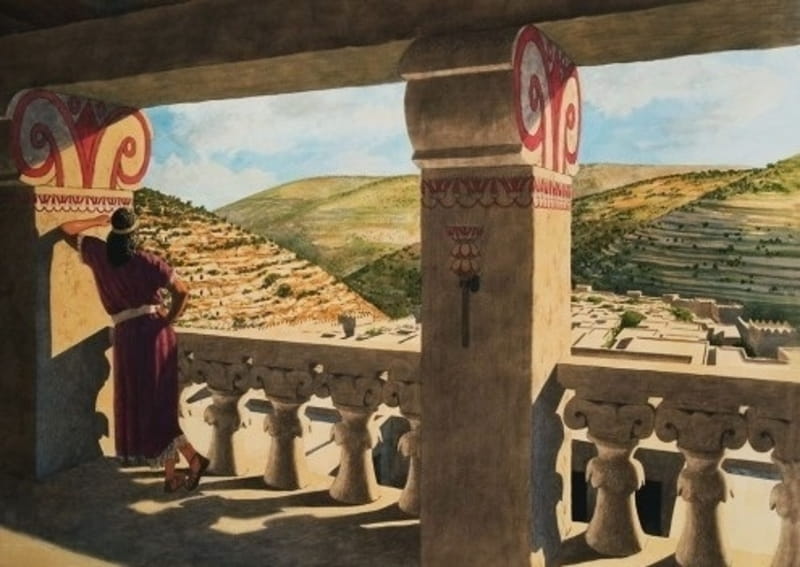What if? Thoughts From David and Bathsheba

This might be one of the saddest stories from the Old Testament. David had been chosen in his youth by God to replace Saul as king of Israel (1 Samuel 16:7) and was anointed by the prophet Samuel. He was the great-grandson of Ruth (Ruth 4:22) one of the most amazing women in scripture. He killed Goliath the Giant because of his faith in God (1 Samuel 17:37). Israel prospered under his reign. Christ would be one of his descendants (Matthew 1). By all measures he lived the life of a great person. But then in his later years he made decisions that would cost him everything.
One night David is taking a walk on the roof of his palace and sees Bathsheba. Seeing a beautiful women is not a crime. Even having a momentary evil thought about her is not a sin. But David decided to dwell on whatever impure thoughts he was having of Bathsheba. More than that he took action to fulfill his desires. He asked who she was and, even after he was told she was the wife of Uriah, sent servants to bring her to him. It needs to be remembered that this sin he committed was not in a moment of passion. It was premeditated adultery. This all took time. Time he could have used to remove these thoughts and gone on with his life with no harm done. Time to turn back if he had sought strength from the Lord to overcome his desires. Even after she was in his room at the palace he could have sent her away. But he didn’t. What if David had turned away after seeing Bathsheba instead of pursuing her?
Once the sin was committed and the consequences became known - Bathsheba was pregnant - David had two choices: repent or cover up the sin. He decided to choose the latter. He brought Uriah back from war and tried to get him to spend time with Bathsheba. Unfortunately for David Uriah was loyal to his brothers-in-arms and would not enjoy good food and the company of his wife while others were at war. At this point David had another chance to confess and repent. But instead he compounded his already great sin of adultery by sending Uriah to the most dangerous part of the battle where he would inevitably be killed. Once again this took time and energy and was not a crime or sin of passion. It was premeditated murder. What if David had repented instead of trying to cover up his sins?
At some point Nathan the prophet finally has to confront David regarding his sin; demonstrating we can never hide our poor choices from God. David begs for forgiveness, but Uriah cannot be brought back to life. There had been many opportunities along the way to choose a different path. Although his son through Bathsheba - Solomon - does end up becoming king the consequences must be paid. The kingdom of Israel dwindles from that time forward and most importantly - and tragically - David loses the greatest gift of God: exaltation (D&C 132:39).
What are the lessons that can be learned from this story? Even the most righteous and seemingly untouchable of us can fall if we give into temptation. None of us are ever “safe” from sin because of past good deeds. Every one of us needs to be constantly vigilant against our weaknesses to avoid falling into traps. And what might seem like an insignificant thought can blossom into tragic consequences if we don’t stop before it’s too late. Don’t let impure thoughts dwell in the mind and heart festering to become fulfilled. “A small and seemingly innocent invitation can turn into a tall temptation which can lead to tragic transgression” (Russell M Nelson). Like Joseph in Egypt run away from sin as quickly as possible. Another lesson is once a mistake has been made immediately confess and make restitution if possible. Since the beginning Satan has wanted us to sin and then try to hide from God. But God knows our thoughts and actions. We cannot cover up our sins with greater ones. Don’t add to one mistake with another by delaying repentance or making more bad choices. Finally, don’t wait for God to come to you. Humbly approach Him and seek forgiveness. Through Christ’s Atonement we can be made whole (Isaiah 1:18).
None of us is perfect. We all have different weaknesses. It is not our place to judge others from their failings. But it is our responsibility to learn lessons from them and to be more wise than they have been (Mormon 9:31).






Excellent thoughts. Thanks for sharing.
ReplyDelete